Dear Friends and Colleagues,
It gives us an immense pleasure to announce the awardees of the IVS 2019 Excellence Prizes:
- Research Excellence Award
Hanoch Daniel Wagner (Weizmann Institute of Science) - Early Career Research Excellence Award
Elad Gross (Hebrew University of Jerusalem) - Surface Science Expertise Excellence Award
Yuri Myasoedov (Weizmann Institute of Science, PI-Prof.Eli Zeldov) - Outstanding Female Scientist Award (supported by Intel)
Charlotte Vogt (Weizmann Institute of Science, PI-Dr. Baran Eren)
Rona Shaharabani (Hebrew University of Jerusalem, PI-Dr. Aviv Mezer, formerly Tel Aviv University, PI-Prof. Roy Beck-Barkai)
The prizes will be awarded during the special ceremony at IVS-IPSTA 2019 Conference on Sept. 3rd.
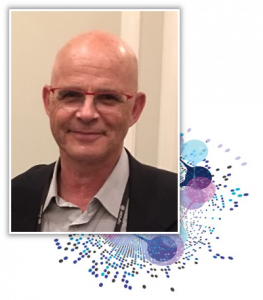 Research Excellence Award -Hanoch Daniel Wagner (Weizmann Institute of Science)
Research Excellence Award -Hanoch Daniel Wagner (Weizmann Institute of Science)
Prof. H. Daniel Wagner obtained his PhD at the Hebrew University of Jerusalem, under the supervision of Prof. Gad Marom (1982). He was a postdoctoral associate and Lecturer at Cornell University (1982-1985) with Prof Leigh Phoenix. Prof. Wagner then joined the Weizmann Institute’s Department of Materials Research (now the Department of Materials and Interfaces), where he is currently a Full Professor and permanently holds the Livio Norzi Professorial Chair in Materials Science. His scientific interests include the micromechanics of novel man-made materials, including carbon nanotubes, graphene, and nanocomposites, and the mechanics of biological composite materials such as bone, dentin, sponge silica spicules, turtle carapaces, scorpion cuticles, as well as cell adhesion. Wagner is the author of 285 papers and several book chapters. In 2000 he was the elected Chairman of the Gordon Research Conference on Composites in Ventura, California. He has received the Gutwirth Prize (Israel, 2010), the Christoffel Plantin Award in Science (Belgium, 2014), the Landau Prize in Arts and Science (Israel, 2014), the Medal of Excellence in Composites (USA, 2016), and the American Society for Composites DEStech Award (USA, 2017).
.
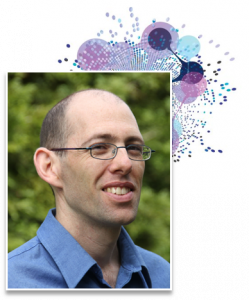 Early Career Research Excellence Award – Elad Gross (Hebrew University of Jerusalem)
Early Career Research Excellence Award – Elad Gross (Hebrew University of Jerusalem)
Elad Gross received his B.Sc. with excellence from the Hebrew University in 2003 and then completed his M.Sc. and Ph.D. with Prof. Micha Asscher (2003-2010). Following a postdoctoral fellowship at UC Berkeley with Prof. Gabor A. Somorjai (2011-2014), he joined the Hebrew University as a faculty member. Elad established his research group that focuses on utilizing innovative IR nano-spectroscopy capabilities to elucidate the fundamental aspects that direct the reactivity of catalytic nanoparticles. His group developed a new research path, in which catalytic processes are mapped by conducting Infrared nano-spectroscopy measurements while using specifically-designed N-heterocyclic carbenes as molecular probes. Using this approach, he was able to detect the influence of various surface sites and reaction conditions on the reactivity of metallic nanoparticles (Nature 2017). Elad was awarded the ERC Starting Grant (2019) to develop a one-of-a-kind IR nanospectroscopy setup with unique capabilities for high spatial resolution mapping of catalytic processes under realistic reaction conditions. Overall, the spectroscopic approach that he developed provided important insights and understanding of the basic elements that direct the reactivity of industrially-relevant heterogeneous catalysts.
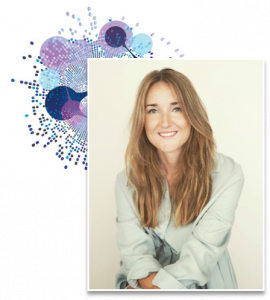 Outstanding Female Scientist Award (supported by Intel) – Charlotte Vogt (Weizmann Institute of Science, PI-Dr. Baran Eren)
Outstanding Female Scientist Award (supported by Intel) – Charlotte Vogt (Weizmann Institute of Science, PI-Dr. Baran Eren)
Charlotte Vogt was born on the 28th of September, 1991 in Utrecht, the Netherlands. She spent most of her primary education in Houston, Texas. After graduating from secondary school (ORS Lek en Linge in Culemborg), she started an undergraduate degree in Chemistry at Utrecht University in 2009. Her Bachelor’s thesis was written under supervision of prof.dr.ir. Bert Weckhuysen Inorganic Chemistry and Catalysis group of Utrecht University. Bert Weckhuysen also became her Master thesis supervisor, and ultimately the supervisor to her PhD thesis. Charlotte obtained her masters in Science (Inorganic Chemistry and Catalysis) and Business Management at Utrecht University with Greatest Distinction in 2015. In 2015 she also spent 7 months in Baton Rouge, Louisiana, working for Albemarle as an Investor Relations intern.
She is currently in the last year of her PhD, and commenced her doctoral degree in 2015 in a PhD project that was part of a CHIPP-TA initiative between BASF and NWO. The first two works of her PhD were published in Nature Catalysis. In December 2018 she obtained a VATAT fellowship for “outstanding international students” to perform part of her PhD research in Israel, at the Weizmann Institute for Science with dr. Baran Eren and prof.dr. Ronny Neumann.
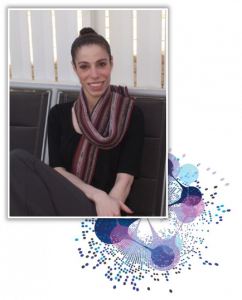 Outstanding Female Scientist Award (supported by Intel) – Rona Shaharabani (Hebrew University of Jerusalem, PI-Dr. Aviv Mezer, formerly Tel Aviv University, PI-Prof. Roy Beck-Barkai)
Outstanding Female Scientist Award (supported by Intel) – Rona Shaharabani (Hebrew University of Jerusalem, PI-Dr. Aviv Mezer, formerly Tel Aviv University, PI-Prof. Roy Beck-Barkai)
Rona Shaharabani gained her academic degrees at the Faculty of Exact Sciences at Tel Aviv University. She completed her B.Sc. in Chemistry Cum Laude, where she was on the Faculty of Exact Sciences Honors Dean’s list. Rona finished her Ph.D. studies under the supervision of Prof. Roy Beck-Barkai in the field of Biophysics. She combined her background in chemistry and physics to study biological systems. Her work concentrated on the interaction within lipid-protein complexes in the myelin sheath model. In particular, the leading interactions that change in neurological diseases which are of great interest to physical, biological, and medicinal fields. Her research yielded several publications at high impact journals like JACS and PNAS. For which Rona received many prestigious prizes and awards, including the Herbert and Sharon Glazer Excellence Award, Women in Chemistry Forum Scholarship, and delivered numerous oral and poster presentations in Israel and Worldwide. Rona served as elected president of the Tel Aviv University MRS student chapter in the years 2017-2018 and organized the 2017 IVS-MRS Student Conference and the first Women in Chemistry Israel Conference in 2018. After submitting her thesis, Rona continued for a postdoctoral fellowship at the Hebrew University of Jerusalem. Her current focus is on the sensitivity of quantitative magnetic resonance imaging (qMRI) signal to changes in water surface interactions in biological systems.
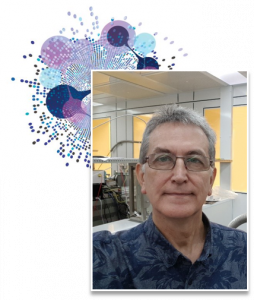 Surface Science Expertise Excellence Award – Yuri Myasoedov (Weizmann Institute of Science, PI-Prof.Eli Zeldov)
Surface Science Expertise Excellence Award – Yuri Myasoedov (Weizmann Institute of Science, PI-Prof.Eli Zeldov)
Dr. Yuri Myasoedov has been instrumental in the development and fabrication of the smallest SQUIDs in the world which are evaporated onto the apex of a very sharp tip (SOTs: SQUIDs-on-tip) that are ideally suited for scanning probe microscopy. Yuri has been the central figure in the creation of a new technique for SOT production based on collimated differential-pressure magnetron sputtering that provides access to a broad range of complex superconducting materials and alloys that were not possible to deposit by evaporation.
The discovery that SOTs have extremely high thermal sensitivity has opened the way for nanoscale imaging of dissipation mechanisms in quantum states of matter and of magnetic and spintronic phenomena in novel magnetic and superconducting devices. The SOT can also act as a scanning nanoscale gate. Using a MoRe alloy sputtering target, SOTs have been fabricated with sub-50 nm diameter, magnetic flux sensitivities higher than 1.2 µφ0/√Hz up to 3 T at 4.2 K, and thermal sensitivities better than 4 µK/√Hz up to 5 T – about five times higher than any previous report.


